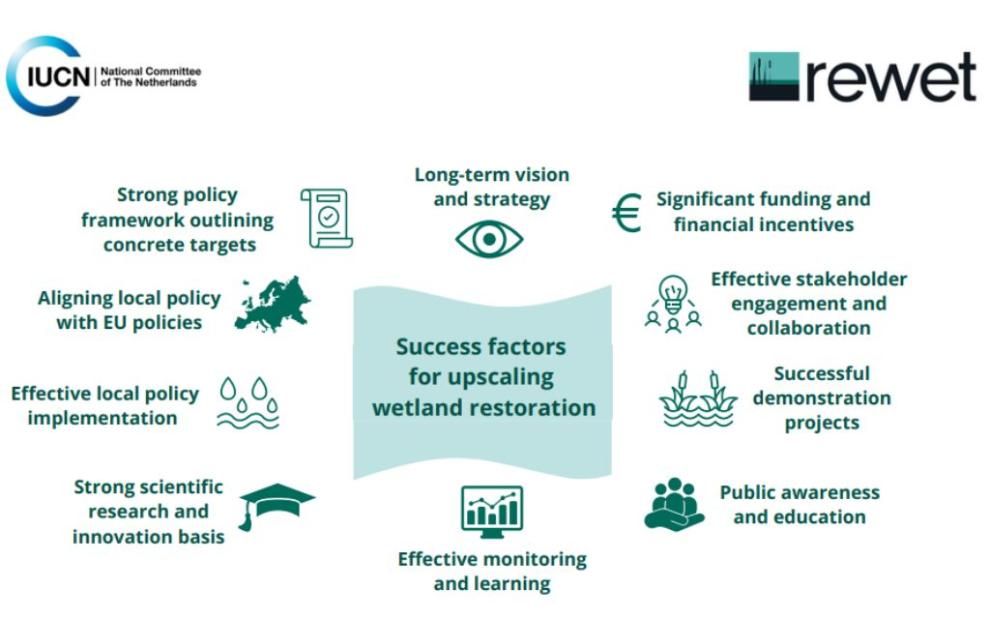Wetlands are precious, but what do we need to do to protect them? Read the policy brief by IUCN NL.

Wetlands are among Europe’s most valuable yet threatened ecosystems. As the continent faces intensifying climate impacts, such as more frequent floods, prolonged droughts, and rising carbon emissions, restoring wetlands has emerged as a key solution to multiple environmental crises.
A new policy brief, Aligning efforts on the EU road towards healthy wetlands, coordinated by IUCN NL, shines a spotlight on the urgent need for large-scale wetland restoration across the EU.
Backed by scientific research from REWET, this brief provides a roadmap to restore wetlands as powerful carbon sinks and protect communities from climate extremes.
Why wetland restoration matters
Healthy wetlands deliver a wide range of ecosystem services:
- Carbon sequestration to fight climate change
- Flood and drought mitigation
- Biodiversity protection
- Water purification and pollution control
However, poorly managed or degraded wetlands can become major sources of greenhouse gases, worsening climate impacts. That’s why scaling up restoration efforts across Europe is not only environmentally responsible but also economically smart. It creates green jobs, boosts rural development, and supports long-term climate resilience.
The role of the EU Nature Restoration Law (NRL)
The EU Nature Restoration Law recognises the cost-effectiveness of wetland restoration for climate and biodiversity goals. But to achieve real impact, Member States must translate this policy into local action. This means:
- Aligning restoration goals at local, regional, and national levels
- Implementing concrete targets through national strategies
- Ensuring cross-border coordination, especially in shared river basins
- Backing efforts with significant funding and stakeholder engagement
Success requires a unified approach
The REWET project has identified key success factors for upscaling restoration:
- A strong, science-based policy framework
- Effective stakeholder collaboration (landowners, farmers, local governments)
- Long-term vision with measurable outcomes
- Access to funding from EU LIFE, climate funds, public-private partnerships
- Monitoring and adaptive management to ensure long-term success
About the REWET Project
REWET (Restoration of Wetlands to Minimise Emissions and Maximise Carbon Uptake) is an EU-funded initiative that brings together universities, NGOs, businesses, and research institutions to study and restore wetland areas. Through seven open laboratories across Europe, REWET is building a comprehensive knowledge base on wetland restoration’s climate benefits. These real-world case studies are helping shape evidence-based policy recommendations for the EU and its Member States.
Take action: align for impact
It’s time for bold leadership. The EU’s commitment to climate action must be matched by coordinated, well-funded, and locally adapted wetland restoration efforts. Policymakers, stakeholders, and citizens can:
- Download the policy brief "Aligning Efforts on the EU Road Towards Healthy Wetlands"
- Support the implementation of the EU Nature Restoration Law
- Raise public awareness about the vital role of wetlands in climate adaptation
Visit the REWET website or contact IUCN for more information and collaboration opportunities.